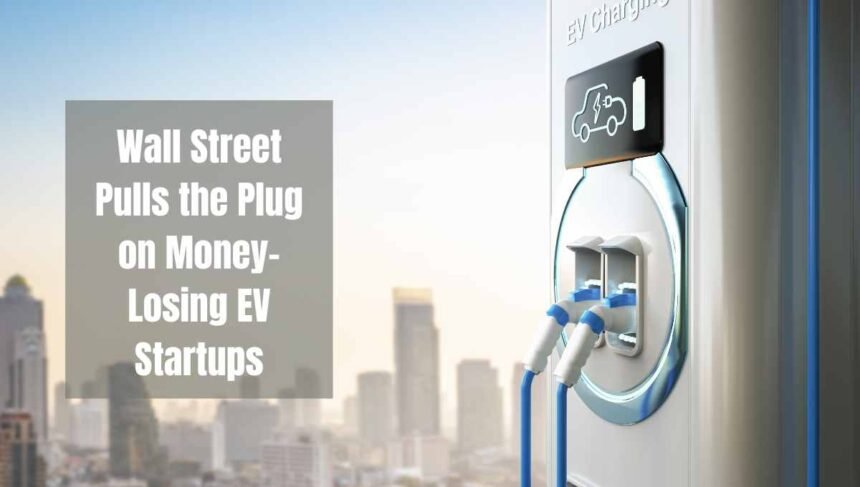Electric vehicle startups have captivated investors and consumers alike with sleek designs and visions of a greener future. But in the current economic climate, profits and positive cash flow reign supreme. EV companies that fail to deliver the goods are seeing Wall Street abandon ship in dramatic fashion.
Fisker Inc. is the latest casualty in a string of analyst downgrades and target price cuts ravaging speculative EV makers. The designer of eco-friendly luxury vehicles saw shares plummet nearly 5% on Monday after Evercore ISI analyst Chris McNally downgraded its stock to the equivalent of Hold from Buy. His price target plunged to $2 from $6 a share.
McNally cited Fisker’s recently chopped production guidance as one trigger for the reversal in outlook. Just three weeks after guidance of 13,000-17,000 vehicles in 2023, Fisker tempered expectations to a meager 10,000 autos next year.
And this wasn’t the first dose of cold water for the EV upstart’s shareholders. Fisker has suffered four downgrades in recent weeks amidst weaker guidance, C-suite exits, and the disclosure of material weaknesses in its accounting practices.
Once a Wall Street Darling, Sentiment Sours Rapidly
The sudden sentiment shift reflects a wider pivot away from money-losing EV startups. Where flashy designs and visions of an electric future once overshadowed financials, focus has zeroed in on the bottom line amidst rising rates and inflation concerns.
In October, 42% of analysts covering Fisker rated shares a Buy. As of Monday, this figure had plunged to just 23% — with 38% now handing out Sell ratings. The average Buy-rating ratio for S&P 500 stocks stands at approximately 55%.
The consensus price target has likewise taken a beating, falling from around $8 in October to $4.55 today. And Fisker is far from alone in this fall from grace.
Lucid Group has gone from five Buy ratings in October to just one lonely bull among 15 analysts. Polestar Automotive Buy ratings have been nearly halved, tumbling from 56% to 33% over the past two months.
Even once high-flying Chinese electric automakers like NIO and XPeng have seen analyst enthusiasm cool considerably across the past 12 months.
Read More: Fisker Stock Crashed 8% on Monday – Is It a Total Dud or Worth the Risk?
Rivian Defies the Trend, But Remains Deep Underwater
Interestingly, Rivian Automotive has managed to keep Wall Street on its side despite spiraling losses. Around 68% of covering analysts continue to rate its shares a Buy — slightly up from 62% a year ago.
But even Rivian, with its $68 billion initial valuation and key backers like Amazon and Ford, has failed to sidestep the sell-off in speculative growth names. Its stock has shed over 40% across the past year, joining peers far beneath once lofty heights.
With easy money disappearing and the economy on shaky footing, profits now rule the day more than ever. Surging rates have made financing cash burn increasingly difficult for startups down to their last billions in funding.
By the numbers, Fisker, Rivian, Lucid, Polestar, NIO, and XPeng have tapped capital markets for around $41 billion combined since inception. And in the new regime of higher rates and cautious spending, sums of that magnitude won’t flow as freely without earnings to back the bluster.
Despite fading confidence, the six pre-profit EV disruptors still boast an aggregate market cap near $60 billion. Over 75% of that value lies with Rivian, XPeng, and NIO — perhaps the most promising profit generators of the bunch.
Nonetheless, until financial viability springs forth, all may remain locked outside the garden of reliable returns. Because while visions electrify the imagination, profits pay the bills in the long run.
Key Takeaways:
- Fisker stock plunges nearly 5% after another Wall Street downgrade citing production cuts
- Sentiment sours rapidly across unprofitable EV startups like Lucid and Polestar as focus shifts to financials
- Rivian defies trend with 68% Buy ratings but its stock still sinks 43% amidst growth stock sell-off
- 6 major EV disruptors have burnt $41 billion in funding, raising risks in higher rate environment
- Startups need profits soon or risk being left out of next electrification wave





